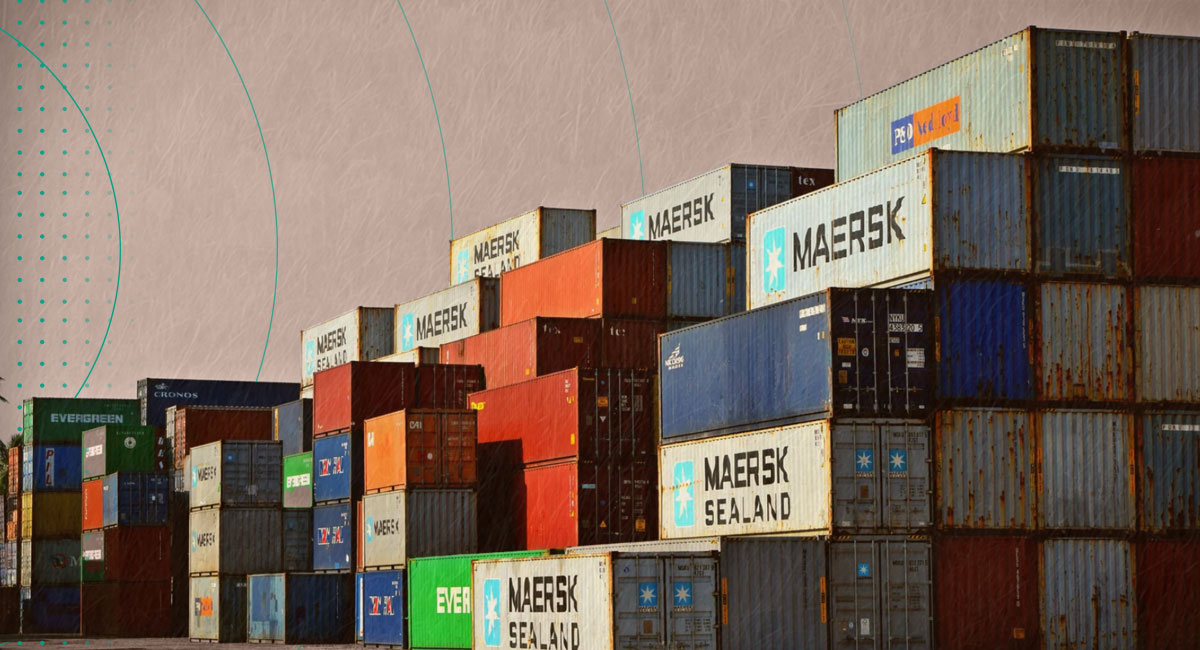In today’s rapidly evolving business landscape, agility and efficiency are not just buzzwords—they are imperatives for survival and growth. This rings especially true for the supply chain sector, an industry complexly woven into the global fabric of commerce. Historically, supply chain management has been one of those verticals where proximity and “in-house” often held sway. However, as we navigate the technological revolution and its subsequent shifts in workplace dynamics, the paradigms are changing.
In this article, we will delve into the roles and responsibilities of a logistics specialist, the feasibility of outsourcing these roles, and why we believe that the future of supply chain management is remote.
What Does a Logistics Specialist Do?
Fun Fact: According to the American Trucking Associations, More than 80% of U.S. communities rely exclusively on trucks for their freight transportation needs, highlighting the critical role logistics specialists play in keeping America’s economy running smoothly.
A logistics specialist serves as the backbone of any efficient supply chain, ensuring that goods are procured, stored, and transported in the most cost-effective and timely manner. In a traditional setup, their role encompasses a range of responsibilities including monitoring inventory levels, liaising with suppliers, and coordinating with transportation companies. As technology increasingly permeates the industry, logistics specialists are also tasked with utilizing software solutions for real-time tracking, predictive analytics, and process automation.
- Inventory Management: Overseeing stock levels and implementing inventory control measures to reduce wastage.
- Supply Chain Optimization: Analyzing data to improve the efficiency of the entire supply chain, from procurement to distribution.
- Vendor Relationships: Negotiating contracts and fostering long-term relationships with suppliers and third-party logistics providers.
In the wake of digital transformation, their role is rapidly evolving to include a strong focus on data analytics and cloud-based solutions. Advanced software tools empower them to monitor real-time data, make informed decisions swiftly, and even forecast future trends. This technological prowess not only enables enhanced performance but also paves the way for remote work opportunities, allowing logistics specialists to contribute meaningfully from virtually anywhere.
Can a Logistics Specialist be Outsourced or Contracted?
Yes. The role of a logistics specialist is increasingly adaptable to outsourcing or contract-based arrangements. In the traditional business model, logistics specialists often worked in-house, embedded within an organization’s operations team. However, as technology has advanced, the logistics function has become more modular and amenable to remote work settings. This shift paves the way for outsourcing or contracting these roles, providing companies with more options to manage their supply chain functions.
- Traditional Model: Historically, logistics specialists were in-house roles focused on day-to-day operations.
- Technological Advancements: Software tools and cloud-based systems have made it easier to manage logistics tasks remotely.
- Outsourcing and Contracting: Modern businesses are increasingly open to these flexible work arrangements for logistics specialists.
Salary of a Remote Logistics Specialist Vs. In-house
The cost structure for employing a remote logistics specialist can offer significant savings, especially when leveraging a global talent pool. In countries like India, the Philippines, and South Africa, the cost of labor is significantly lower than in countries with high living costs, such as the United States. For instance, the average annual salary for a logistics specialist in India ranges from $8,000 to $12,000 USD, whereas in the Philippines it ranges from $6,000 to $9,000 USD.
| Expense Category | Remote Logistics Specialist (Global) | In-house Logistics Specialist (U.S.) |
| Base Salary | $20,000 – $30,000 | $75,000 – $95,000 |
| Health Benefits | Varies/Optional | $10,000 |
| Office Space & Utilities | Not Applicable | $5,000 |
| Training & Development | Typically Included in | $2,000 – $4,000 |
| Software & Tools | $500 – $1,000 | $500 – $1,000 |
| Total Cost | $25,000 – $40,000 | $92,500 – $111,000 |
Opting for a remote logistics specialist can provide substantial cost savings, especially when the talent is sourced globally. There’s
6 Reasons Why Hiring Logistics Specialists Remotely is the Future of Supply Chain Management
The integration of remote work into logistics roles is not merely a trend but a strategic shift that is set to define the future of supply chain management. Below are six compelling reasons that underscore why hiring remote logistics specialists is a forward-thinking move.
1. Cost Efficiency
In traditional settings, the costs associated with logistics specialists go beyond salaries to include infrastructure, utilities, and benefits such as healthcare and retirement plans. Remote logistics specialists dramatically reduce these overhead expenses. For example, a company can save substantially on rent, electricity, and other facility-related costs by having a decentralized team. These savings can be redirected into growth initiatives, R&D, or returned to shareholders, offering a competitive advantage in pricing strategies.
2. Scalability
As businesses grow, so does the complexity of their supply chains. In traditional setups, scaling often involves cumbersome processes like recruiting, training, and provisioning new workspaces, all of which take time and money. Remote logistics specialists provide an agile solution, enabling businesses to rapidly onboard or offboard talent in response to market demands. This model also allows for a more project-specific focus, making it easier to adapt to changing requirements without being weighed down by long-term employment contracts.
3. Global Talent Pool
Hiring remotely provides companies access to a broader, more diverse talent pool. Traditional in-house roles are often limited to local or regional talent, which may lack specific skill sets or worldviews. Remote logistics roles open doors to specialists from around the globe, allowing companies to hire the best fit for the job, irrespective of geographical limitations. This access to global talent offers a multitude of viewpoints, specialized skills, and cultural perspectives that can contribute to more innovative and robust logistics solutions.
4. Technological Advancements
The logistical challenges that once required physical presence can now be managed with advanced cloud-based software solutions, from real-time tracking of shipments to inventory management. These technologies offer high levels of automation, machine learning capabilities, and data analytics tools that can be accessed from anywhere. Consequently, remote logistics specialists are now as effective as in-house teams, if not more so, given the freedom to leverage best-in-class tools without the constraints of location-based IT infrastructure.
5. Enhanced Flexibility
Remote work brings about a level of flexibility that’s hard to achieve in a traditional office environment. Logistics specialists working remotely can provide coverage across multiple time zones, allowing for a near 24/7 operational capability. This global footprint ensures that someone is always available to manage any unexpected challenges that may arise in the supply chain. Additionally, the remote work model is often more attractive to top-tier talent, who value the ability to manage a better work-life balance.
6. Sustainability
Sustainability is a growing concern for many companies, both from an environmental and a corporate governance standpoint. Remote work significantly reduces the carbon footprint associated with daily commutes and office energy consumption. Moreover, remote teams often utilize digital tools for tasks that would otherwise require paper, thus contributing to more sustainable, paperless operations. Adopting remote logistics roles aligns well with Corporate Social Responsibility (CSR) goals and can be a selling point for environmentally-conscious stakeholders.
7. Business Continuity and Risk Mitigation
In a globalized world fraught with uncertainties—ranging from natural disasters and pandemics to political upheavals—having a centralized logistics operation can be a liability. Relying on an in-house team located in a single geographical area exposes the company to the risks associated with that specific location. A remote logistics workforce, by virtue of being dispersed, can offer a form of risk diversification. If one location faces an unforeseen crisis, the responsibilities can be swiftly reallocated to specialists in different regions, thereby ensuring uninterrupted business operations. This setup is crucial for maintaining robust supply chains and can be an integral part of a comprehensive business continuity plan.
8. Faster Decision-making
The culture of remote work is often steeped in principles of autonomy and self-management. Unlike traditional office settings where hierarchical structures can sometimes delay decision-making, remote logistics specialists are accustomed to making timely, independent choices. With the support of real-time data analytics tools, these remote professionals can make quick, informed decisions without waiting for approval through multiple layers of corporate bureaucracy. This efficiency is invaluable in logistics where delays can lead to significant financial losses or compromised relationships with suppliers and customers. The agility to make fast, yet effective, decisions not only improves operational efficiency but can also serve as a competitive advantage in the fast-paced world of supply chain management.
Conclusion
The future of supply chain management is shifting towards remote logistics specialists for compelling reasons—cost-efficiency, scalability, and global talent access. At 1840 & Company, we specialize in making this transition seamless and strategically aligned with your business goals.
If you’re ready to take the next step towards optimizing your supply chain operations, we invite you to schedule a consultation with us. Our experts are on hand to provide tailored solutions that fit your specific needs, helping you gain a competitive edge in a rapidly evolving landscape.




